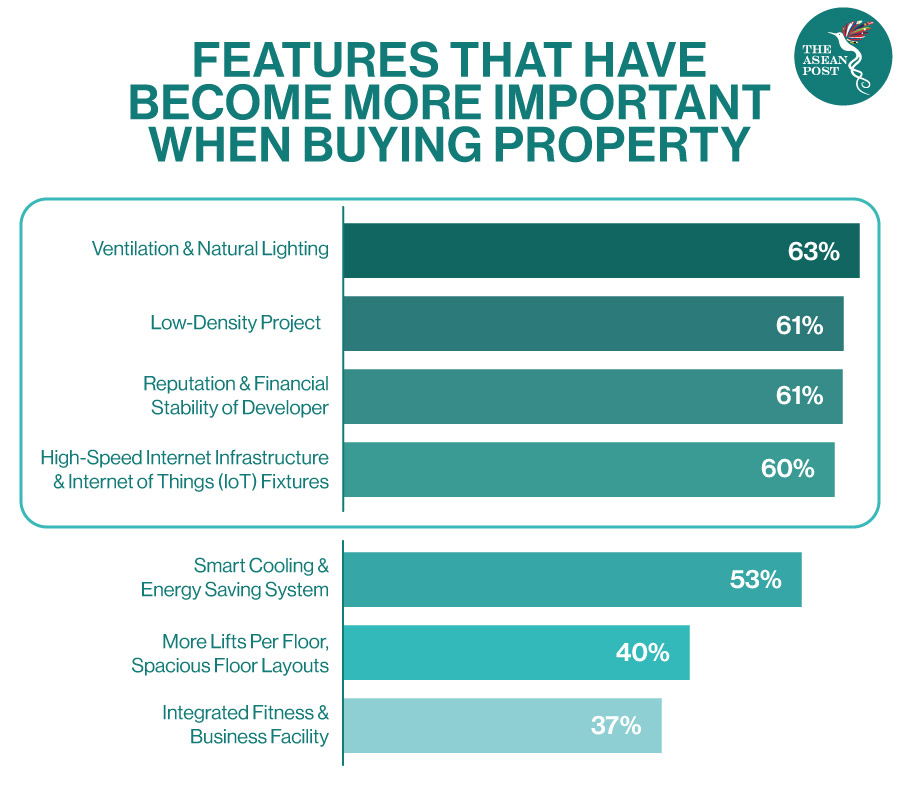In recent years, Malaysia’s property market has been resistant in terms of price. It was reported that over the last 30 years, house prices declined between 1998 and 1999 due to the impacts of the 1997 Asian financial crisis. Then in 2001, the property market in the country entered into a recovery phase. A few years later the mid-cycle dip took place during 2007 to 2009 because of the subprime mortgage crisis. And since 2009, Malaysia’s property market entered the explosive phase.
According to a report by the National Property Information Centre (NAPIC), the median price of homes in Malaysia stood at RM293,000 (US$70,238) in the third quarter of 2018. From 2010 to 2018, median home prices peaked in 2017 at RM303,000 (US$72,635), whereas price growth accelerated from 2012 to 2013 – from RM170,000 (US$40,752) to RM250,000 (US$59,930).
NAPIC stated that the median price refers to residential property sales prices that sit at the middle of the data set.
The report also noted that the capital city of Kuala Lumpur had the highest median house price, at RM550,000 (US$131,847). This was followed by Putrajaya, a city in the south of the capital, and in the state of Selangor which encircles Kuala Lumpur.
Nevertheless, property prices in the country could decline by 10 to 20 percent due to the coronavirus pandemic.
Lim Boon Ping, President of the Malaysian Institute of Estate Agents (MIEA) said in an online ASEAN Real Estate Forum that as a result of the COVID-19 crisis, the Malaysian real estate market will shift to a buyer’s market from a previously seller’s market.
“It is likely that house prices in Malaysia will drop for the first time since 1999,” he said.
Eyeing Properties
Local media in the country reported that as Malaysia enters the recovery stage of the pandemic, first time buyers are now looking to secure their homes while investors are waiting for the right time to make their move.
“We’ve seen a lot of market uncertainty in the wake of COVID-19 and the resulting Movement Control Orders (MCOs) in Malaysia, with numerous viewpoints, models and strategies from industry players trying to make sense of the pandemic and its impact on property,” explained Sheldon Fernandez, Country Manager for PropertyGuru Malaysia, a property and real estate website.
“Looking purely at consumer sentiment, however, some patterns are clear. One of these is that extended, enforced time at home has perhaps made renters and younger home seekers more appreciative of the benefits of owning their own property. Another is that investors are on the lookout for purchases, though these demographics differ in their approach to purchase timing,” he added.
A recent survey by PropertyGuru published in its report titled, “Malaysia Consumer Sentiment Study H2 2020” found that 81 percent of respondents are looking to buy a property in the short-term of one- to 1.5 years.
Other than that, the study also revealed that more Malaysians are citing an intention to purchase for investment purposes post COVID-19, increasing from 47 percent of respondents in H1 2020 to 53 percent in H2 2020.
Knight Frank Malaysia, a real estate consultancy, stated that the pandemic may have brought about a shift in buyers’ preference in the residential property market.
“Subject to affordability, they may prefer landed properties/low-density developments with larger or more spacious layouts that come with extra room/study that can be converted into a home office as working from home may be a new normal moving forward,” noted Knight Frank Malaysia in a report.
This can be seen in the PropertyGuru study as respondents cited space and developer considerations, ventilation and lighting, high-speed internet infrastructure and Internet of Things (IoT), among others, as more important when buying a property following the country’s partial lockdown, also known as the MCO.

“However, difficulties in viewing properties and challenges in securing home loans are the issues most frequently faced by Malaysians returning to a new normality,” said Fernandez. Although keen on property, the study showed that renters and those living with parents are most likely to have difficulty finding loans.
He also added that financing and affordability will come under scrutiny as many prioritise day-to-day survival in this phase of a potential recession.
Related Articles:
